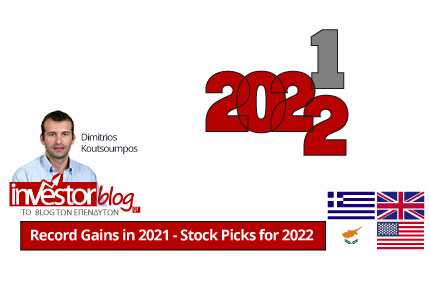 The main idea I presented for 2020, a year that prices fluctuated a lot, was that we shouldn’t let prices judge our investing journey and returns. The year 2021 had again the usual fluctuations, but seemed so smooth compared to 2020, the year of coronavirus, tough measures, and extended lockdowns.
The main idea I presented for 2020, a year that prices fluctuated a lot, was that we shouldn’t let prices judge our investing journey and returns. The year 2021 had again the usual fluctuations, but seemed so smooth compared to 2020, the year of coronavirus, tough measures, and extended lockdowns.

 Greek Portfolio
Greek Portfolio
For one more year, Greece, from which I didn’t expected much, offered me a return of +35% (Athens Stock Exchange General Index – ASE: +10.4%), one of the greatest I have ever enjoyed in a year. By adding the fact that I held cash that hovered around 30%, the invested part of the portfolio achieved mind-blowing returns.
Of course, I don’t think that they are representative of my abilities, and not sustainable for the long run. Although this was the third year in a row with satisfactory results. In 2019, I achieved +14% (ASE: 49%), and in 2020, +18% (ASE: -11.75%). Whatever it is, I feel satisfied about the outcome. Even as not representative, it’s a demonstration of my ability to outperform, something I have been doing in Greece for the past 15 years.
For this year, ΙΤ put the seal. As I mentioned a year ago, the IT sector collectively had been the largest part of the portfolio, with Epilon Net (EPSIL), and Entersoft (ENTER), at the top. These stocks skyrocketed during the year, and approached valuations that made me think that I should be a seller.
Intracom (INTKA), Ilida, and Ideal (INTEK), were the first to say good bye to the portfolio. I had included Intracom in this category due to its subsidiary (Intrasoft), but the company sold it in the year. For Entersoft and Epsilon Net, initially I hesitated to take some of the profits, by considering scenarios that might justify the seemingly high valuations. Finally, I cashed out a significant part of these positions as well.
I was inclined to this decision, as Flexopack (FLEXO) and Jumbo (BELA) reached levels of undervaluation. Hence, after its recent rise, Flexopack became the largest position of the portfolio (excluding Cyprus: KEO) at the end of the year. It matched Karelia in value, with Jumbo following in the third position.
Apart from IT, Alpha Astika Akinita contributed to the performance. It was the third largest position a year ago, but now it’s absent from the portfolio. It was bought for €6.2 per share (37% discount to its internal value), and was sold for €9.65 per share, very close to the internal value. The stock reacted to an announcement of the company that is seeking a strategic investor. Because it was an asset play, the selling of the stock was an easy decision when it approached the intrinsic value.
Despite the great performance, I am concerned about the Greek Portfolio. At the end of 2020, I thought that some of my picks had large upside potential towards the fair price. This year, I don’t feel that that’s the case. The same I thought at the end of 2019. Although Jumbo, Flexopack, and Karelia are cheap, I don’t think them as something extraordinary. Because of that, I am reserved in my expectations.
Of course, businesses and stock prices are volatile, so it’s possible one of the 20-30 companies I follow, appreciate, and have been knowing well for years, might come to a “firing distance” in the year. Due to the existing “drought”, I am ready to take larger positions in possible new opportunities. I should not forget to express my gratitude for Cyprus, with its forgotten “diamonds” (like KEO, Lordos Hotels), which I include in the Greek portfolio.
At the time I am writing these lines, my largest positions in the Greek portfolio are: Jumbo, ΚΕΟ (Cyprus), Karelia, Flexopack, Lordos Hotels (Cyprus), Epsilon Net.
United Kingdom
The UK hasn’t been generous enough to give me any strong performance yet. However, I am satisfied this year, because I had some positive surprises in the financial and business performance of the companies that I own. I highly suspect that their fair price is much higher than the quoted price, and believe that the price realisation is lying ahead.
Since I have started (2018), I am positive, despite the debacle of 2020 due to the coronavirus and my large exposure to the retail sector. This year, I have come back to the sector, keeping positions in Superdry (SDRY), N Brown (BWNG), Quiz and Spaceandpeople (SAL), companies seeming to have reached a turning point. I basically question the last one only. I write them in order of aggressiveness, meaning that Spaceandpeople is the most risky, but the one that could evolve to a wild multi-bagger. I give such possibilities to Quiz as well.
In February, I presented you with my 5 largest positions in this video, and later I wrote an article about two smaller positions (JKX, Enwell). JKX tendered the stock and delisted at a much higher price than I bought, but much lower to what I would think as a fair price. In its essence, the process was scandalous, but I was not surprised by such a behavior by such a management. Enwell, which I am still holding, recently announced that its net cash increased to $92.5 million, compared to $63 million at the end of the half-year period.
It’s a sign of the superprofits that these producers are realising, since they are some of the few that can drill and sell in Europe, where the natural gas is priced 6-7 times higher compared to America ($27/MMBTU, instead of $4/MMBTU). It needs to be mentioned that the price peaked at levels double than today. Having initially bought the stock at 21p, I payed a price that equals today’s cash. Current conditions, which are nothing more than a flash in the pan, could bring annualised earnings in excess of $50 million, being able to further increase the value and the prospects of the company.
My current 7 largest positions in the UK are: BT Group, Zytronic, Creightons, Safestyle, Spaceandpeople, Enwell, Quiz.
 America
America
In the American portfolio, including some international stocks, the put options are still burning the profits I earn from equities, because they are expiring and vanishing. However, it is a conscious decision as a hedge against all investments (America, UK, Greece-Cyprus)
The cost I pay is manageable, but unfair for this small portfolio. For international stocks, I feel I have improved in understanding the evolution of their figures, compared to my abilities 5 or 10 years ago. So, it’s a pity because put options haven’t allowed this small portfolio to reach a greater size through the compounding of the performance.
Thus, now that the options have expired, I have to take a strategic decision on weather I should or not renew them and continue paying this type of insurance. I count in the positives, the hedging power and the influx of cash in difficulties, but in the negatives, I feel pain for the hemorrhage of this insurance fee. Honestly, I have not come to a decision yet. It’s funny in life that it’s when you cut the insurance that the typhoon comes. If I continue paying, I will do in a moderate and sensible way.
My largest positions are still in the cyclical Smart Sand (SND) and Canfor Pulp (CFX), while I am holding two stocks from the Eastern Europe, which I find pretty cheap and stable (Warsaw Stock Exchange, Romgaz). As for growth, I have small positions in Ebay, Dropbox (DBX), and Yelp.
Nice and lucky profits came through the Australian Prime Media (PRT). I opened an initial position, being ready to asses it further and increase. In less than a month, the coming of a tender offer forced me to sell +72% higher from my entry point. The stock was trading with a ridiculous multiple over its cash flows, which, after a quick analyis, I thought they were more representative of the reality, compared to what the poorer earnings illustrated. At the same time, net cash was covering approximately half of the market capitalization. What a great case!
My largest positions in the American portfolio (including international stocks) are: Canfor Pulp (Canada), Smart Sand, Romgaz (Romania), Warsaw Stock Exchange (Poland), Magellan Aerospace (Canada).
Other Thoughts
For 2022, I would like to share with the audience that follows Greek listed companies that most of the profits in small caps are due to inventory increases because of the commodities rally, and due to the favorable conditions in general. I foresee a lot of pain in small cap “carcasses”, which became profitable by luck, and marginal businesses that seem as a catch at the moment, because of their current numbers.
The only domestic driven companies to escape the disaster, will be those who used to be loss making because their engines were on idle. Now, by gradually revving up and turning to pre-crisis revenue and volumes, they will turn the page. However, I think that such companies are very few.
There is a large cap (for Greek standards) company for which I am totally negative, while a few years ago, I had bought it and written a positive article. I am talking about Mytilineos (MYTIL). I believe that the energy intensive industry does not have a very promising position in Europe, and maybe will have the fate of the textile industry. Not due to the labor cost, as it was the case for textile, but due to the energy cost.
The primary aluminum is referred to as solid electricity, due to the massive amounts of energy it demands. In Europe, by aiming for energy independence, cleaner energy, and by struggling to achieve this under the increased demand, the most obvious sacrifice seems to be this energy intensive metal. Otherwise, it’s like dreaming of rice fields in the desert, at a time that you have not enough water to drink, and you are importing it. Especially, when you are paying a higher price, because you demand it to be clean, you are the weakest link, and the one to break in the next downturn, which is endemic in this cyclical sector.
Although excessively high energy price won’t persist for long, Europe again will anyway suffer higher costs compared to America and other regions (Russia, Middle East), where the competitors are partying with the high aluminum prices, triggering investments for increased production, there. Here, on this side of the river, it should worry us that, one after the other, the European smelters are shutting down, or curtail the production. When they don’t, they count on state support, being presented as a strategic sector. This type of aid can be enough for the survival, but cannot promise decent profits. For how long can the Public Power Corporation (PPC) (the Greek state-run electricity company), or the state, lift this weight?
I recognise that Mytilineos is believed to be a competent businessman, and that he is diversified among different sectors, which can be helpful, but regardless, I believe that he will feel the pain for the next five years. It would make sense only to buy his company deep under the book value. Currently, at €15.87 per share (Market Cap: €2.2 billion), I believe that the company is both pretty expensive, and with challenges ahead. I am wondering how the analysts have fallen in love with it. If I had to bet against a large cap that would underperform the Greek Stock Market General Index, that would be Mytilineos
Feeling a bit exhausted, after the above “hammering”, I would like to conclude this, otherwise festive, article in a positive tone. Despite the traps, I consider stocks as the best form of long-term investing, when the intentions are towards investing rather than speculation. I hope you all have a great year in all aspects, full of health and joy.
This is a translation from the original Greek article, published on 20th, January, 2022.
Dimitrios Koutsoumpos
*Content presented on Investorblog does not present any recommendation for stock transactions. All investors are advised to conduct their own independent research into individual stocks before making a purchase decision.

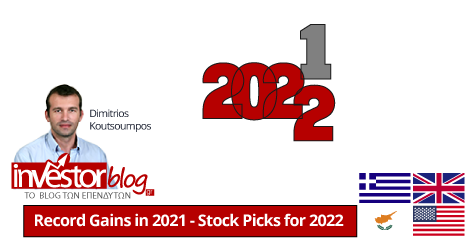

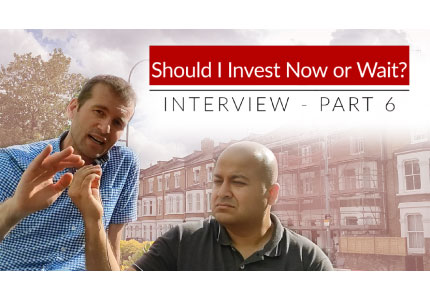
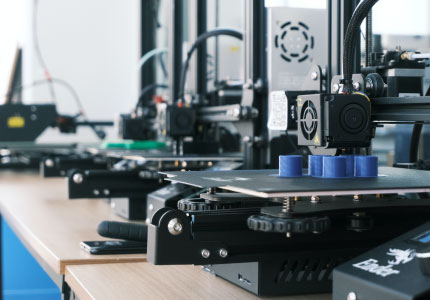

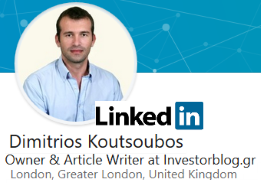

Leave a Reply